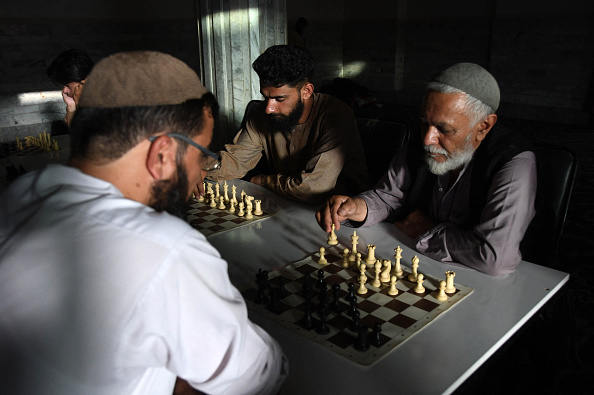The Taliban has temporarily banned chess in Afghanistan, and there is no timeline for when the ban may be lifted. The ostensible reason is concern about gambling. I don’t know why they can’t just prohibit gambling on chess rather than prohibit playing the game altogether. It’s not a good look for the regime and furthers the impression that they’re opposed to fun in nearly all its forms.
According to Chess.com, there have been other fairly recent prohibitions on playing chess in the Islamic world, including for a time in post-Saddam Iraq, during the Taliban’s first run in power in the 1990’s, and in the early days of the Islamic Revolution in Iran. Going back further in time, there were bans in the Catholic Church in the 11th-Century, and Islamic caliphs imposed bans in the 7th and 8th centuries.
I certainly understand the treating gambling as a vice and using public policy to discourage it, but chess isn’t a natural gambling game. Of course, you can bet on the outcome of anything, including the weather. That doesn’t mean you should try to ban sun, snow and rain.
Here in the United States, I think chess clubs have been one of the healthiest influences on my now teenage son, not just for the mental exercise chess provides but for the culture such clubs create around a life of the mind rather than a life of chasing attention on social media. The clubs also tend to be very multiethnic which makes them a great way for kids to mingle and get to know differing kinds of people that might not be in their natural social circle in school.
And, ironically, I’ve never once encountered any betting on games in these chess clubs or around chess tournaments. I’m sure it happens, but it’s not “a thing” that the kids do.
Another irony is that chess prowess could be a source of pride for the Taliban. Consider that presently the highest-rated Muslim chess player in the world is Nodirbek Abdusattorov who is from Afghanistan’s northern neighbor, Uzbekistan. The second-highest rated player is Alireza Firouzja from Afghanistan’s western neighbor, Iran. The third-highest rated player is Nihal Sarin from Afghanistan’s eastern neighbor, India.
It’s worth mentioning also that, while he is not a Muslim, the current chess world champion, Gukesh Dommaraju, is also from India. The sport is absolutely thriving in Afghanistan’s part of the world, and I can see no evidence that it is contributing negatively to the culture there. Hell, I’d rather India and Pakistan play competitive chess, even for money, than lob missiles and bombs at each other. Wouldn’t you?
Not for the first time, and certainly not for the last, I just wanna say to the Taliban, “Relax! Let people be.”








I’ve been working on an article on the history of the Tarot deck. It’s just a Renaissance-era card game from Italy, from one perspective and in so far as the church has our had a problem with card games, it was on account of the element of chance. But chess is purely a matter of skill and has therefore been less likely to face religious censure. But the game Tarot was originally conceived as a game of memory and in the Renaissance mind, of virtue. Basically, the original card games were all able card counting.
Not directly relevant, just something fun I’m working on.
Definitely an interesting angle on the history of gambling, games and religion.